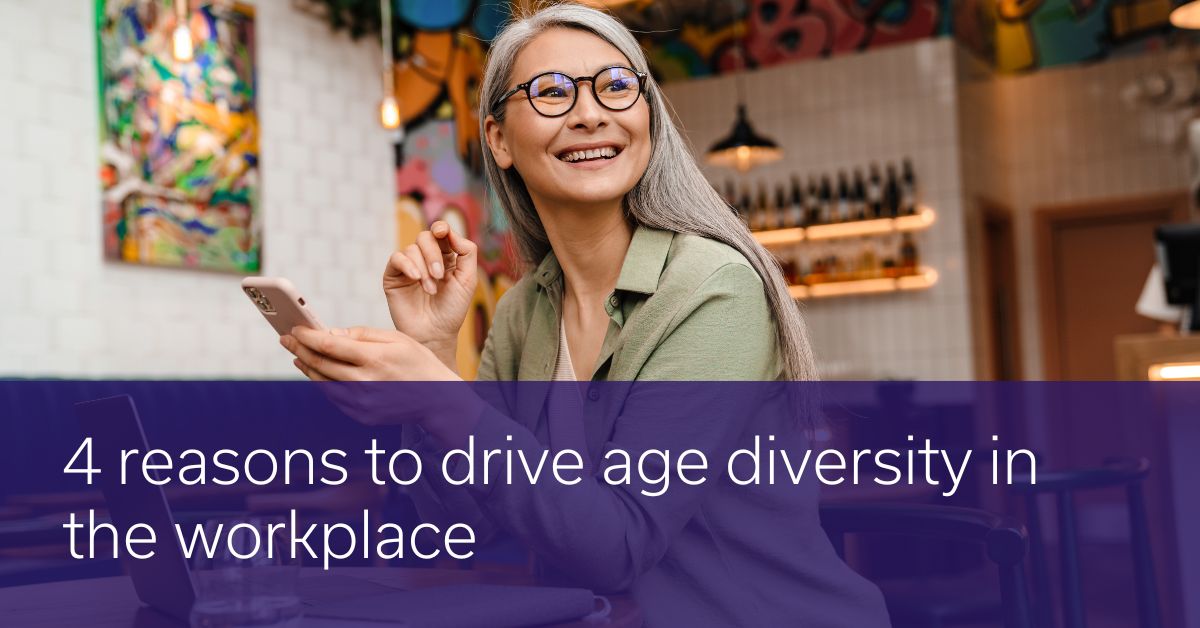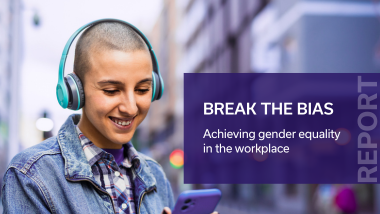4 reasons to drive age diversity in the workplace
There’s much evidence to suggest that today’s most successful businesses are those that actively focus on equity, diversity, and inclusion (ED&I). So why is ageism still a grey area?
All too often, despite many companies making significant gains in gender equality and ethnic diversity, internal ED&I initiatives fail to account for ageism. Baby Boomer and Gen X workers are often identified as the most likely victims of ageism – from discrimination in the workplace, to age-driven bias throughout the recruitment process.
According to Robert Walters’ 2022 Diversity & Inclusion Age Report, many of the age-based misconceptions holding older workers back are based on the generalisation that they’re reluctant to embrace digital transformation or adopt new processes. Nonetheless, studies show that older professionals are becoming more adept at all things digital – 87% of boomers manage their finances online, while 86% of those who are online spend at least six hours a day there.
By 2030, half of all UK adults will be aged 50 and over. It’s clear that now is the time to embrace and invest in age diversity. Here’s why a multi-generational workforce is the key to future success.
1. Close your skill gaps
Most organisations bemoan the lack of skilled people in the marketplace. But could it be that talent acquisition teams aren’t looking in the right places? It’s common for employers to compete for experienced people aged 25 to 45 – but these age limits are restrictive in terms of both equality and talent.
The over-50s are the most experienced people in the workplace. Not only can they deliver on the tasks they are set and possess an unmatched knowledge of the company’s history and processes, they can share their wisdom with younger employees and help them expand their skill sets.
2. Boost productivity
Research by AARP has shown that age-diverse teams are more productive than groups of people with similar ages. The presence of older workers who know a company inside and out can bring greater stability to a team. Having already lived through multiple periods of change, these industry veterans can support their younger colleagues to react to industry shifts in a balanced way.
But learning is a two-way street, and the variety of experiences and points of view that a multi-generational workforce can provide will also bring out the best in your older workers. There’s no shortage of skills and insights they can pick up from their younger counterparts. By pulling the various strengths of all your employees together, your company will foster creative and forward-thinking ideas.
3. Improve employee retention
Age-diverse workplaces have lower turnover rates. According to a 2021 IFS report, only 4% of older workers typically change employer in a single year, while over two-thirds (69%) of 55-year-old workers have been with their employer for more than five years.
For ambitious younger workers, working closely with experienced industry professionals can be highly valuable in terms of upskilling and informal mentoring, and could incentivise them to stay at your organisation, too.
4. Promote a positive culture
Ageing – and subsequently, ageism – is something that happens to everyone. For younger workers who are cognisant of this, it can be highly encouraging to work alongside real-life examples of older workers who are valued by their organisations, so they can see it is as something that can be normalised.
The more diverse an organisation, the more confident each employee feels about being authentic and bringing their whole self to work. Feeling accepted is proven to enhance wellbeing, which in turn leads to better attendance rates and productivity.
Driving age diversity in the workplace
The workforce has changed. We now have five generations at work in the UK, life expectancy has greatly increased, and people are fitter and healthier than ever.
Many people no longer want to fully retire in their sixties, and their skills and knowledge can be of great benefit to an employer. And yet negative preconceptions and outdated views still stand in the way.
Candidates commonly report age discrimination in the recruitment process and, despite calls for improved workplace policies focused on older workers, there’s still a lack of progress. However, the forward-thinking employers who are embracing these mature and experienced professionals are being rewarded with greater productivity, employee retention, and innovation.
To learn more about National Older Workers Week, visit the Work Wise website.
Want to create a more inclusive recruitment process? Our RS Consultancy’s award-winning Recruitment Inclusivity Audit is the most advanced diverse hiring audit available, analysing the impact of recruitment content and processes across seven different lenses, including Age. Click here to learn more.













